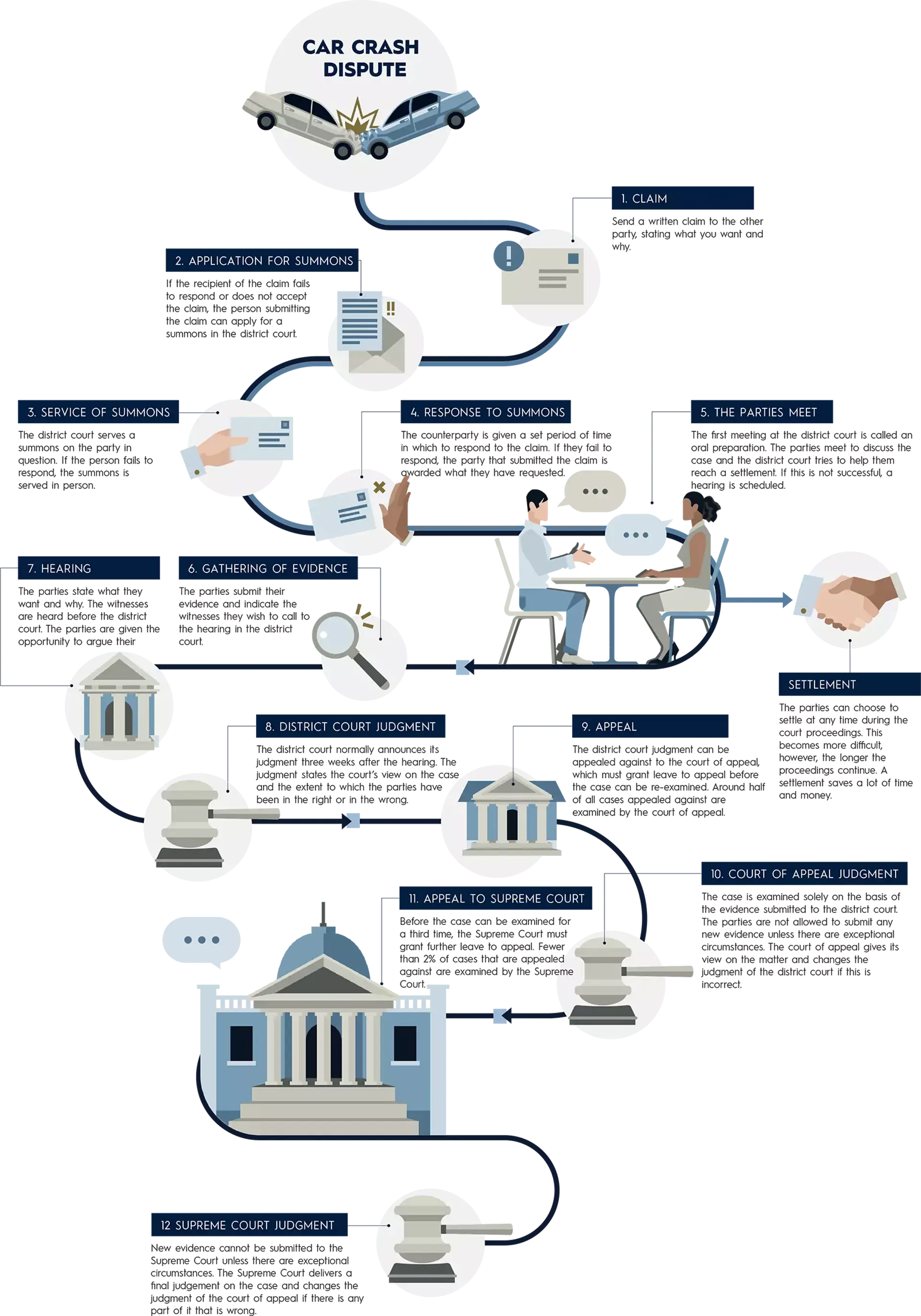Here’s how to settle a dispute in court
Everyone finds themselves in conflict with someone else at some point in their lives. Most disputes are resolved through negotiations and compromise. Sometimes disputes can be so difficult that you need help to settle them. One way to do this is to engage a third party who works to resolve the dispute. If you are still unable to resolve a dispute, you can have the matter settled in court.
The courts also put a lot of effort into settling disputes on a voluntary basis. If this is not possible, the court can make a decision and determine which of the parties is right or wrong.
It is important to understand that the courts only decide on a case based on the evidence submitted. If a piece of evidence is not placed before the judge, it will not be used as a basis for the judgment.
Disputes between private individuals are normally settled in the district court.
In the district court, the parties say what they want and why. The parties are then questioned first, followed by any witnesses they have called. Finally, each party is given the opportunity to argue their case. In civil cases, the district court announces its judgment a few weeks after the proceedings have concluded.
The party that loses the case can appeal to the court of appeal and have the case re-examined, but only on the basis of the evidence that was presented to the district court.
Leave to appeal is required in order for the court of appeal to examine the case, otherwise the judgment of the district court stands. Around half of all cases appealed against are examined by the court of appeal.
The judgment of the court of appeal may be reviewed by the Supreme Court if there are particular reasons for doing so. Leave to appeal is also required in this case. Fewer than 2% of cases that are appealed against are examined by the Supreme Court.
Specialist courts are used for some kinds of disputes, such as labour disputes and tenancy disputes.
Disputes with the state are examined in the administrative court, administrative court of appeal and the Supreme Administrative Court. The rules on pursuing a case in these courts are slightly different.
Most of the cases that come before the district court are decided within seven months. Many disputes take considerably longer to resolve. Sometimes it can take several years before a dispute is finally settled.
Below is an overview of the procedure for a dispute in the general courts.
